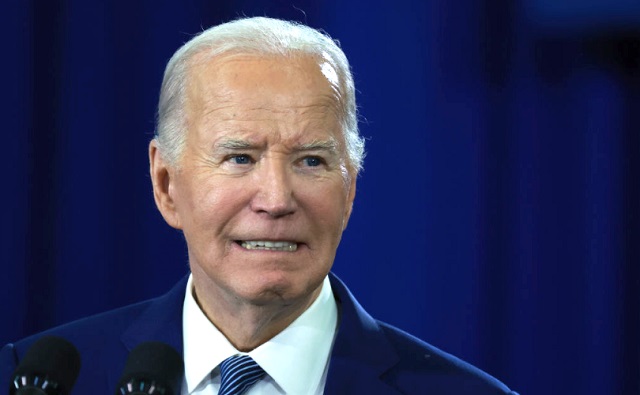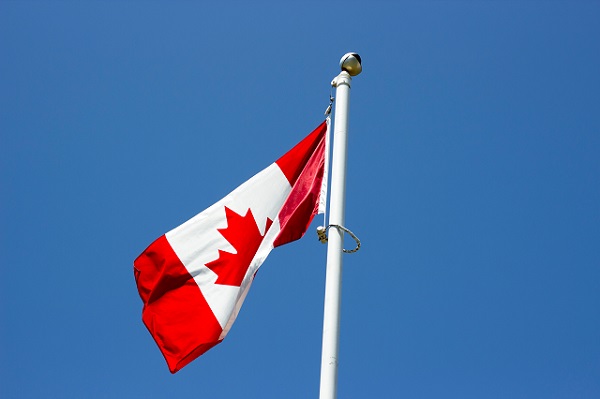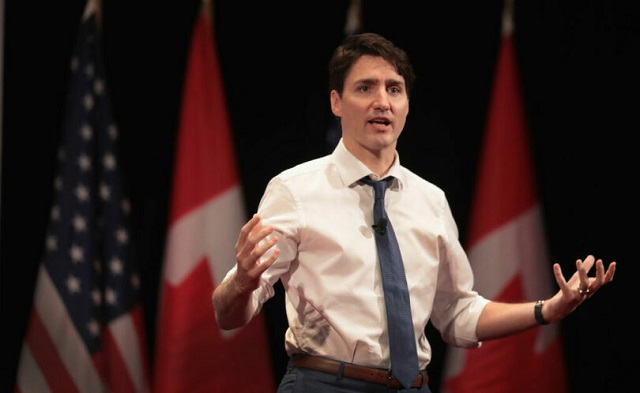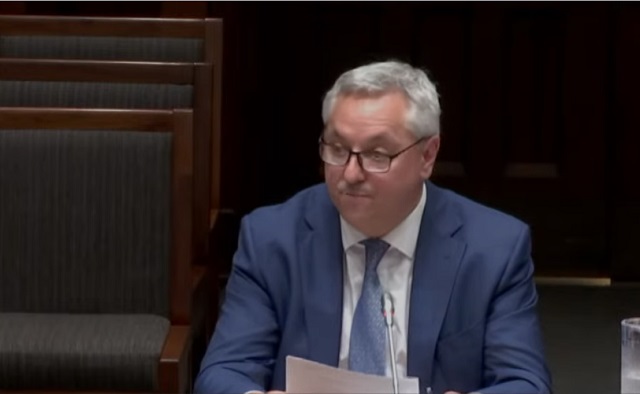Alberta
Third Albertan has died from Coronavirus – 40 new cases in Alberta

{The Province has not released any information about the location or age of the third fatality)
From the Province of Alberta
Update 16: COVID-19 pandemic in Alberta (March 29 at 5:30 p.m.)
A third Albertan has died and 40 additional cases of COVID-19 have been confirmed, bringing the total number of cases in the province to 661.
Latest updates
- Cases have been identified in all zones across the province:
- 408 cases in the Calgary zone
- 149 cases in the Edmonton zone
- 46 cases in the Central zone
- 45 cases in the North zone
- 12 cases in the South zone
- One case in a zone that is yet to be confirmed
- Of these cases, there have been 41 hospitalizations, with 14 admissions to intensive care units (ICU), and three deaths reported.
- Up to 60 of the 661 cases may be due to community transmission.
- McKenzie Towne Long Term Care has 11 new cases identified, bringing the total to 26 at that facility. There are no reported changes for Rosedale on the Park (one case) and Shepherd’s Care Kensington Village (four cases).
- There are now a total of 73 confirmed recovered cases.
- Aggregate data, showing cases by age range and zone, as well as by local geographical areas, is available online at alberta.ca/covid19statistics.
- All Albertans need to work together to help prevent the spread and overcome COVID-19.
- Restrictions remain in place for close-contact businesses, dine-in restaurants and non-essential retail services. A full list of restrictions is available online.
- Albertans are prohibited from attending gatherings of more than 15 people, and they must continue to observe two metres of social distancing. This includes events both indoors and outdoors, such as family gatherings, weddings and funerals. Further details are available online.
Vehicle restrictions in parks and recreation areas
Vehicle access to provincial parks, and parking lots and staging areas on public land has been suspended to help reduce the spread of COVID-19, in addition to facilities that have also been closed. Alberta Environment and Parks is doing its part to protect Albertans and parks employees. Included in the vehicle access closures are provincial recreation areas and public land recreation areas, where parking lots and staging areas exist.
List of essential workplaces
The list of essential workplaces that can continue to operate in Alberta can be found online.
Mental health supports
AHS has boosted its service to help Albertans should they need to speak with someone about mental health concerns.
If Albertans call the Mental Health Help Line at 1-877-303-2642 or the Addiction Help Line at 1-866-332-2323 between 7 a.m. and 11 p.m., seven days a week, they will be connected directly to a dedicated team of AHS addiction and mental health staff.
This will allow the 811 health team to focus on COVID-19 calls during the day and improve wait times for others needing telephone advice. Calls placed from 11 p.m. to 7 a.m. will continue to be routed through 811.
Emergency isolation supports
Emergency isolation supports are available for Albertans who are self-isolating or who are the sole caregivers for someone in self-isolation, and have no other source of income. Applicants can view eligibility criteria and apply at alberta.ca. To carefully manage the flow of applications, we are periodically closing access to MADI and the emergency isolation support. We will provide daily updates about system availability.
There is no formal deadline for emergency isolation support. This is a temporary program to bridge the gap until the Federal Emergency Care Benefit is available.
Quick facts
- The most important measures that Albertans can take to prevent respiratory illnesses, including COVID-19, is to practise good hygiene.
- This includes cleaning your hands regularly for at least 20 seconds, avoiding touching your face, coughing or sneezing into your elbow or sleeve, disposing of tissues appropriately, and staying home and away from others if you are sick.
- Anyone who has health concerns or is experiencing symptoms of COVID-19 should complete an online COVID-19 self-assessment.
- For recommendations on protecting yourself and your community, visit alberta.ca/COVID19.
Alberta
Former senior financial advisor charged with embezzling millions from Red Deer area residents

News release from Alberta RCMP
Former senior financial advisor charged for misappropriating nearly $5 million from clients
On April 4, 2024, the RCMP’s Provincial Financial Crime Team charged a Calgary resident for fraud-related offences after embezzling millions of dollars from his clients while serving as a senior financial advisor.
Following a thorough investigation, the accused is alleged to have fraudulently withdrawn funds from client accounts and deposited them into bank accounts he personally controlled. A total of sixteen victims were identified in the Red Deer area and suffered a combined loss of nearly $5 million.
Marc St. Pierre, 52, a resident of Calgary, was arrested and charged with:
- Fraud over $5,000 contrary to section 380(1)(a) of the Criminal Code; and,
- Theft over $5,000 contrary to section 344(a) of the Criminal Code.
St. Pierre is scheduled to appear in Red Deer Provincial Court on May 14, 2024.
“The ability for financial advisors to leverage their position to conduct frauds and investment scams represents a significant risk to the integrity of Alberta’s financial institutions. The investigation serves as an important reminder for all banking clients to regularly check their accounts for any suspicious activity and to report it to their bank’s fraud prevention team.”
- Sgt. John Lamming, Provincial Financial Crime Team
The Provincial Financial Crime Team is a specialized unit that conducts investigations relating to multi-jurisdictional serious fraud, investments scams and corruption.
Alberta
Political parties will be part of municipal elections in Edmonton and Calgary pilot projects

Strengthening Alberta’s local elections
Alberta’s government is introducing legislation to ensure Albertans can rely on transparent, free and fair elections, and municipally-elected officials have clearer accountability measures.
In a democratic society, Albertans expect their local elections to be free and fair, and their elected officials to be held to account by clear rules that govern their local councils. The Municipal Affairs Statutes Amendment Act proposes amendments to the Local Authorities Election Act (LAEA) and the Municipal Government Act (MGA) to add greater transparency to local election processes and ensure local councils and elected officials continue to remain accountable to the citizens who elected them.
“Our government is committed to strengthening Albertans’ trust in their local governments and the democratic process that elects local leaders. The changes we are making increase transparency for Alberta voters and provide surety their votes will be counted accurately. We know how important local democracy is to Albertans, and we will work with local authorities to protect and enhance the integrity of local elections.”
Local Authorities Election Act
Albertans expect free and fair elections and that’s why it’s important we strengthen the rules that govern local elections. To strengthen public trust in local elections, Alberta’s government will eliminate the use of electronic tabulators and other automated voting machines. All Albertans should be able to trust the methods and results of local elections; requiring all ballots to be counted by hand, clarifying rules and streamlining processes for scrutineers will provide voters greater assurance in the integrity of the results.
All eligible Albertans should be able to vote in local elections without impediment. Alberta’s government will limit the barriers for eligible voters to cast a ballot by expanding the use of special ballots. Currently, special ballots can only be requested for very specific reasons, including physical disability, absence from the municipality, or for municipal election workers. By expanding the use of special ballots, the government is encouraging more voter participation.
Amendments in the Municipal Affairs Statutes Amendment Act would increase transparency in local elections by enabling political parties at the local level. Political parties would be enabled in a pilot project for Edmonton and Calgary. The act will not require candidates to join a political party in order to run for a local or municipal office, but will create the opportunity to do so.
In addition, proposed changes to the Local Authorities Election Act would allow municipalities the option to require criminal record checks for local candidates, thus increasing transparency and trust in candidates who may go on to become elected officials.
Municipal Government Act
The role of an elected official is one with tremendous responsibility and expectations. Changes proposed to the Municipal Government Act (MGA) will strengthen the accountability of locally elected officials and councils. These include requiring mandatory orientation training for councillors, allowing elected officials to recuse themselves for real or perceived conflicts of interest without third-party review and requiring a councillor’s seat to become vacant upon disqualification.
If passed, the Municipal Affairs Statutes Amendment Act will also unlock new tools to build affordable and attainable housing across Alberta. Proposed amendments under the MGA would also create more options for municipalities to accelerate housing developments in their communities. Options include:
- Exempting non-profit, subsidized affordable housing from both municipal and education property taxes;
- Requiring municipalities to offer digital participation for public hearings about planning and development, and restricting municipalities from holding extra public hearings that are not already required by legislation; and
- Enabling municipalities to offer multi-year residential property tax exemptions.
Municipal Affairs will engage municipalities and other partners over the coming months to hear perspectives and gather feedback to help develop regulations.
Quick facts
- The LAEA establishes the framework for the conduct of elections in Alberta municipalities, school divisions, irrigation districts and Metis Settlements.
- The MGA establishes the rules governing the conduct of local elected officials once on council, as well as the overall administration and operation of municipal authorities in Alberta, including any policy those authorities may wish to implement.
Related information
-

 conflict2 days ago
conflict2 days agoCol. Douglas Macgregor torches Trump over support for bill funding wars in Ukraine and Israel
-

 Censorship Industrial Complex2 days ago
Censorship Industrial Complex2 days agoNow We Are Supposed to Cheer Government Surveillance?
-

 Alberta2 days ago
Alberta2 days agoRed Deer Doctor critical of Alberta’s COVID response to submit report to Danielle Smith this May
-

 Business1 day ago
Business1 day agoDon’t be fooled by high-speed rail
-

 Alberta1 day ago
Alberta1 day agoActivity-Based Hospital Funding in Alberta: Insights from Quebec and Australia
-

 Business22 hours ago
Business22 hours agoUN plastics plans are unscientific and unrealistic
-

 International2 days ago
International2 days agoBiden admin expands Title IX to include ‘gender identity,’ sparking conservative backlash
-

 Business21 hours ago
Business21 hours agoTaxpayers criticize Trudeau and Ford for Honda deal







